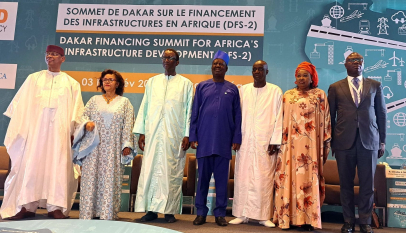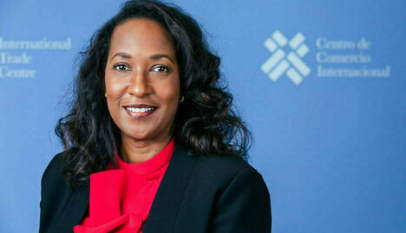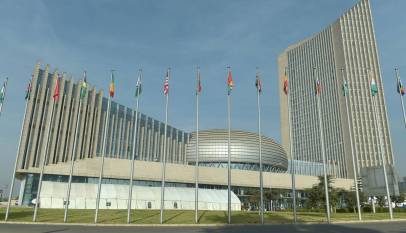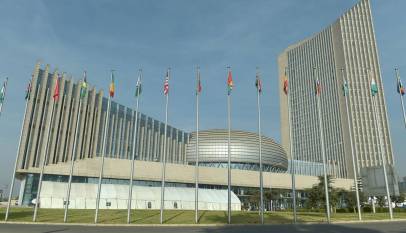INTERVIEW: “FAEO’s maiden conference to address Africa’s energy challenge” – Mustafa Shehu
Mustafa Shehu, President of the Federation of African Engineering Organisations, FAEO, the umbrella body of professional engineers in Africa speaks about his efforts to strengthen the organization including partnering with the African Union
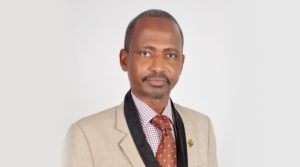
How has the effort of resuscitating the FAEO been?
Well, I can’t say I am resuscitating the organization because it has already been resuscitated by the efforts of many leaders before me. Under the umbrella of the Federation of African Engineering Organisations, FAEO; a lot of efforts were put by my predecessor, Dr Martin van Veelen, from South Africa. He went round Africa to attend a lot of engineering functions; conferences, seminars and workshops, to establish the presence of the FAEO as well as gain support for it within those engineering organizations.
It was also during his time that we started having discussions with the African Union, with a view to having some relationship with them and when I took over, I tried to solidify on that effort and so we had series of meetings with the African Union. We presented a draft Memorandum of Technical Agreement to the African Union which we are supposed to sign with them. They are studying the draft to make the necessary amendments to satisfy their standard operating procedures to enable their leadership give approval for signing the document.
I believe it will be signed very soon and we can start action. Meanwhile, we can’t fold our hands and say we cannot do anything until the agreement with the AU is signed; on our own we are making efforts to make sure we swell our membership base. We are in contact with some countries like Senegal, Djibouti, Sudan, Niger Republic and the Gambia. We are trying to get their engineering organizations register with FAEO and the World Federation of Engineering Organizations, WFEO.
We have made decision to be rotating the quarterly executive council meeting within the various member countries across the 5 regions of Africa. We also advise any country that is willing to host the council meeting to make it coincide with their engineering conference so that council members can also attend the engineering conference in the hosting country.
Last March we had the executive council meeting in Accra, Ghana which was well attended and we are going to have the council meeting for the second quarter in East Africa, in Kampala, Uganda, precisely on the 17 of June and it is going to coincide with the annual conference of the Institution of Professional Engineers of Uganda, which will take place between 16 and 17 of June. We have also proposed to have the meeting for the third quarter in southern Africa in September and it will be hosted by the Engineering Council of South Africa, ECSA.
So, that level of cooperation is a good development which was not the case before. I am also glad to inform you that we are going to have the first annual conference of FAEO, the African Engineering Conference on Energy, AECA-Nigeria in Abuja under the theme: “Reliable, Sustainable, and Affordable energy in Africa” in November. It will be hosted by the Nigeria Society of Engineers. I think that is a big milestone and the attendance are going to be huge which will send a clear message to the whole of Africa and the entire world.
Having steered over the affairs of FAEO for over one and a half years, what can you say are the major challenges facing engineers and the engineering profession in Africa?
Well, the major challenge, as we keep saying, is employability, up to now a lot of engineers are not employed while some are underemployed. This is a very serious challenge and there is also capacity deficiency so we need a lot of capacity building programs and initiatives to improve the employability of African engineers and you cannot achieve that without a deliberate policy that ensures our governments and systems look inward, by making a deliberate policy that provides for a special provision for the training of indigenous engineers and making sure they participate in mega projects.
You can never be an expert if you don’t participate in such mega projects, the Europeans, Chinese and Indians are better at it because they have been in it for so many years and they have been getting jobs consistently; their governments give huge support to their companies to get jobs outside their countries. Our governments need to show deliberate effort in making sure that professionals do not idle away; it costs a lot to train an engineer and when you spend a lot to train someone and yet you don’t engage them, certainly, it is a very big loss to the continent.
So these are the challenges we are facing which is why we want to come together as an organization because the more you are in number, the stronger you become and the more your voices are heard so as to be able to use all possible avenues to let our governments know that the best way to achieve sustainable infrastructure is to make sure that the engineers trained either within the continent or outside it participate in mega projects. These are the challenges and I believe with the support and cooperation of all stakeholders certainly there is a lot of hope for moving forward.
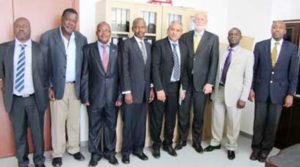
How do you hope the first ever continental conference of African engineers will help unite African engineers, bring about knowledge sharing towards sustainable infrastructure development on the continent?
First of all, because we want to host the conference as an African conference, right from nomination of the membership of the conference planning committee, we sent for nomination from all the five regions of Africa. So, we have two people each from East Africa, North Africa, Central Africa, Southern Africa and West Africa, as members of the conference planning committee. These people will make sure they circulate information to their regions about the conference regarding its theme and sub themes so that people from these regions will come and make paper presentations.
Once you have 3 or 4 papers from each region you have a fair representation of what is happening in that region, as far as energy is concerned and that is what makes the conference African; that everyone is involved right from the planning stage to paper presentations and discussions. And of course during the conference, we are going to develop a communiqué that will be served to all countries individually and through the African Union Commission. We are also going to have a General Assembly during which we will elect people to serve in various leadership positions of the Federation.
What specifically is the major goal you want to achieve with the pioneer annual conference of FAEO?
The most important thing we want to achieve with the conference is to see us [African engineers] together as a family and also to be able to confront the problem of energy in Africa head-on; there is a huge energy deficit in Africa and if you talk of energy challenge, it is definitely an engineering problem.
So, let the engineers in Africa put their heads together, see the realities of the problems and also see how the energy deficit could be bridged. If we can help solve Africa’s energy challenge, I think we have made a significant contribution to her development. So, if we can achieve these 2 things I believe the conference is a success.
The world over people are talking of alternative or rather renewable energy, is the conference going to explore how Africa can tap the potentials in renewables like solar and wind energies?
The Sub-Saharan Africa has just about 32% electricity access and this is a very serious situation. You see, while we are not unmindful of the need to go for renewables, so as to reduce carbon emission, we are at the same time aware that our backwardness is so enormous that we first of all need to solve the basic energy problem and when you say you want to have sufficient energy in Africa you can’t achieve that using a single source – it has to be a hybrid of thermal, solar, wind, biomass and even nuclear.
Africa’s contribution to carbon emission globally is extremely low; just a little over 3%. So, our main concern is that people don’t even have a lighting bulb in their houses because our contribution to global energy development is really small, as such we should talk about this fundamental problem first. But of course if you are talking of sufficient and reliable energy you don’t only explore thermal but all the sources that are available. Africa is greatly endowed with most of the potentials for electricity generation, thermal, solar, wind and even nuclear. So we have to utilize all these to meet our crucial energy need.


